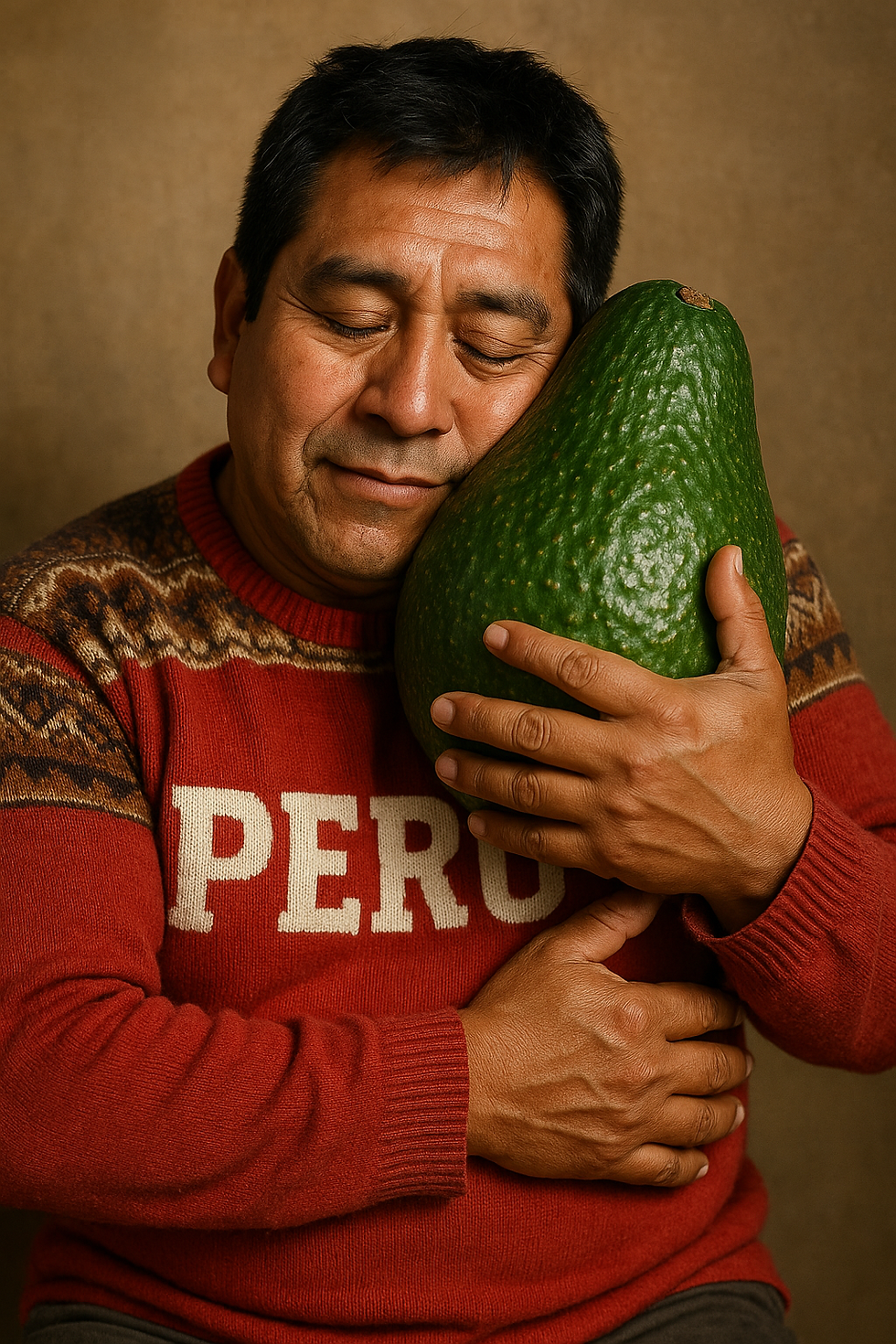Peruvians Don’t Just Eat Food — We Speak It
- smillennium

- 2 days ago
- 2 min read

In Peru, food is more than a source of pride — it’s also a second language.
We’ve woven our national dishes and favorite ingredients into everyday conversation so deeply that you can talk for five minutes without realizing you’ve served up a full menu of slang.
Here’s your guide to some of the tastiest expressions in Peruvian Spanish — none of which have anything to do with actually eating (well, almost none).
Causa
Literal: A famous potato-based dish with yellow chili and lime.
Meaning: Friend, buddy.
“¿Qué tal, causa?” = “What’s up, buddy?”
It’s like calling someone bro, but with the warmth of mashed potatoes.
Sancochado
Literal: A hearty soup of beef, cabbage, and tubers.
Meaning: A big problem, messy situation, or confusing mix.
If someone says “Eso está sancochado,” they’re not complimenting your cooking — they’re saying it’s a hot mess.
Cau cau
Literal: Stew of diced potatoes with tripe or chicken.
Meaning: Problem or personal issue.
“¿Cuál es tu cau cau?” = “What’s your problem?”
Chanfaina
Literal: Beef lung stew.
Meaning: A poorly done job, a mess, or a confusing mix.
Cancha
Literal: Toasted corn kernels served as a snack or with ceviche.
Meaning: A lot, in abundance.
If someone says “Hay gente como cancha,” it means “There’s a crowd.”
Apanado
Literal: Breaded and fried meat.
Meaning: To be attacked (verbally or physically) or heavily criticized.
“Me hicieron un apanado en redes sociales” = “They roasted me on social media.”
Yuca / Enyucar
Literal: Cassava.
Meaning: Something difficult. “La tarea está yuca” = “The task is hard.”
Enyucar = Give someone a hard job or scam them.
Papaya
Literal: Papaya fruit.
Meaning: Something very easy. “Ese examen fue papaya” = “That test was a piece of cake.”
Palta
Literal: Avocado.
Meaning: Embarrassment, awkwardness.
“No te hagas paltas” = “Don’t stress/feel awkward.”
Pachamanquearse
Literal: From pachamanca, meat and vegetables cooked underground.
Meaning: To enjoy something intensely, or to make out / have sex.
Piña
Literal: Pineapple.
Meaning: Unlucky person.
“Soy piña, siempre pierdo” = “I’m unlucky, I always lose.”
Zanahoria
Literal: Carrot.
Meaning: A wholesome, “goody two-shoes” person with no vices.
“Es bien zanahoria, nunca bebe ni sale de noche.”
Lenteja
Literal: Lentil.
Meaning: Slow person.
“Ese tipo es lenteja, nunca llega a tiempo.”
Tener camote (por alguien)
Literal: To have sweet potato for someone.
Meaning: To be infatuated, head over heels.
“Tiene camote por su vecina” = “He’s crazy about his neighbor.”
Arroz con mango
Literal: Rice with mango.
Meaning: Nonsense, a confusing or absurd mix.
“Lo que dijo el jefe fue un arroz con mango total.”
Chaufa
Literal: Peruvian-style fried rice from Chinese-Peruvian cuisine.
Meaning: Informal goodbye (chau + chaufa). Playful way to say “bye” with flavor.
Why It Matters
These expressions aren’t just slang — they’re snapshots of Peruvian culture.
They show how food is tied to our humor, our emotions, and our daily interactions.
And for Spanish learners, mastering these phrases means more than speaking the language — it means tasting it.



Comentarios